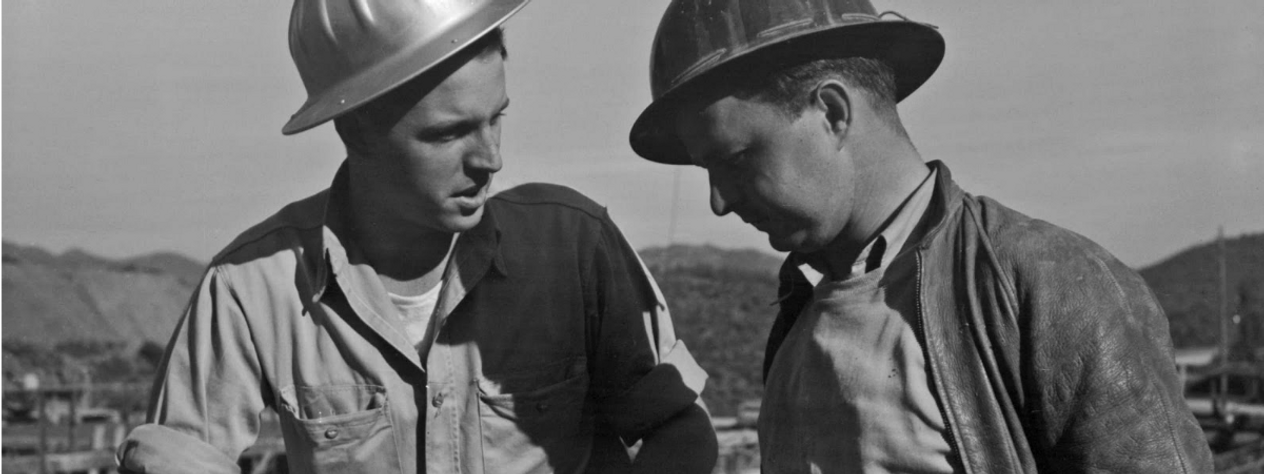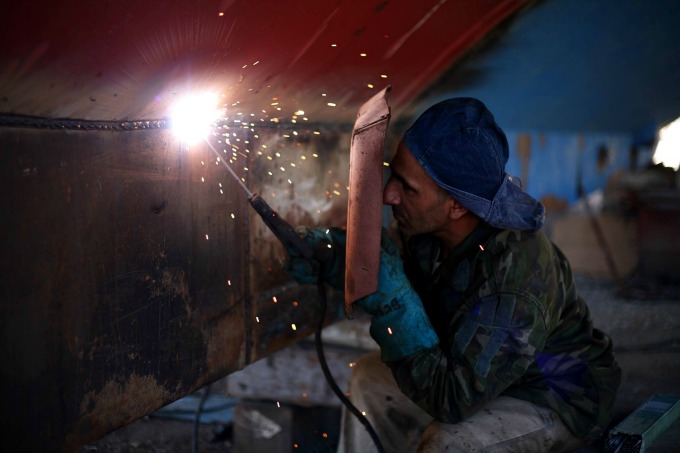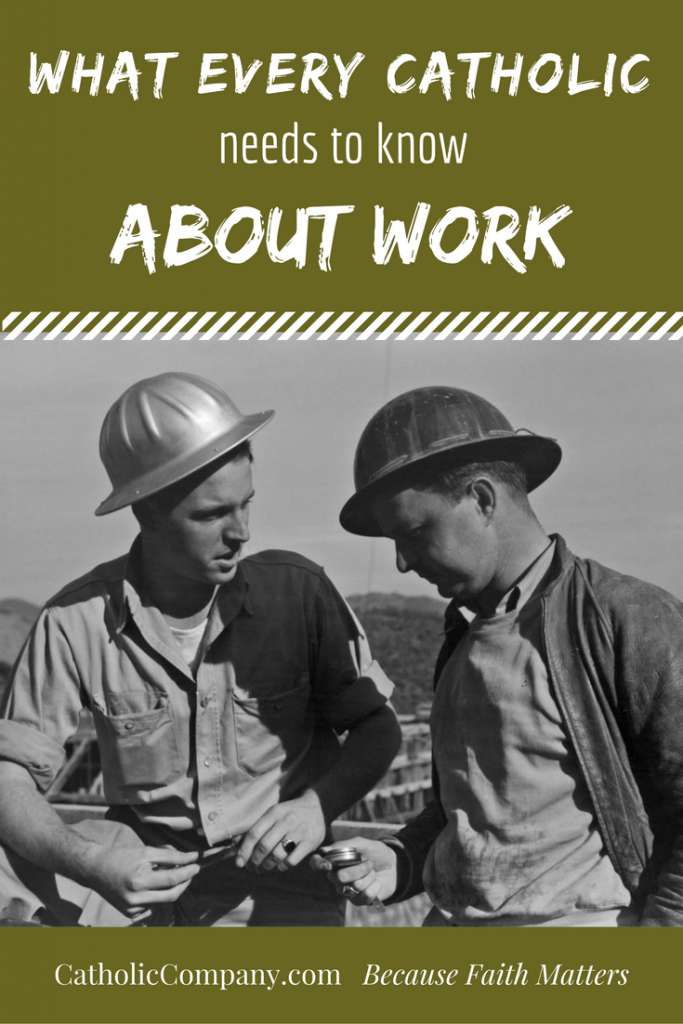What Catholics Need To Know About the Dignity of Work
Sep 04, 2016 by Nick Rabiipour
Fill in the blank:
“Only man is capable of ____, and only man ____s, at the same time by ____ occupying his existence on earth. Thus ____ bears a particular mark of man and humanity, the mark of a person operating within a community of persons. And this mark decides its interior characteristics; in a sense it constitutes its very nature.” —Saint John Paul II
At first glance, you might think that Pope St. John Paul II is discussing art, compassion, or maybe even justice. Well, he’s not. What he's talking about is . . . work.
Yes, you read that correctly: work.
In fact, this quote comes from Laborem Exercens, a papal encyclical on Human Work. In light of Labor Day, I believe that it is especially important to reflect on the real value of working.
In Laborem Exercens, Pope John Paul II emphasizes the importance of work to the human condition. He even goes so far as to say that “it is through man’s labour that not only ‘the fruits of our activity’ but also ‘human dignity, brotherhood and freedom’ must increase on earth.”
Clearly work is an important thing for a human to do. But it is also especially important for young people.
According to John Paul II, “it is particularly painful when [unemployment] affects young people, who after appropriate cultural, technical and professional preparation fail to find work, and see their sincere wish to work and their readiness to take on their own responsibility for the economic and social development of the community sadly frustrated.”
Pope Francis himself said, in 2013, that “The world crisis is not treating young people well...We are running the risk of having a generation that does not work. From work comes a person’s dignity.”
Why is work so important? Especially to younger people?
Well, I think there are four major reasons:

1.
To reiterate what John Paul II said, when a young person prepares, through education and other means, to be ready for employment, they expect to find work equivalent to their preparation. If they do not find work that is a serious tragedy, especially if they spent lots of money and time preparing. The young person will undoubtedly feel discouraged, and begin to re-think the value of their education and preparation.
This is all especially crucial because work is the means for our livelihood; without it, we cannot live in basic human decency, which requires at least the very basics of food, shelter, and clothing.
2.
Work also teaches young people the real value of money. A young person who has not worked has no real idea of what it takes to earn money. They tend to have a shallow view of how money is earned if it simply comes from the bank of Mom & Dad. By working a young person can actually learn how much effort must go into earning money and what the real value of money is.
3.
Work also teaches a young person how to be productive and efficient. Especially in entry lower-level jobs, if someone does not work efficiently to produce a good product or service, they can be fired. At many jobs you cannot get away with mediocrity and procrastination.
4.
By work, we are truly able to to put to good use the talents which God has given us. Our efforts and accomplishments, combined with the joy and peace that comes from truly harnessing our individual gifts and skills, can become a great blessing to those around us, and even to the world.
Laborem Exercens states, very beautifully, that "...an inner effort on the part of the human spirit, guided by faith, hope and charity, is needed in order that through these points the work of the individual human being may be given the meaning which it has in the eyes of God..."

As Catholic fathers, we ought to encourage our children to work when they reach the appropriate age and maturity. I began working when I was fifteen years old, and it taught me many valuable lessons which I use today in my professional life.
Finally, these words of John Paul II in the same encyclical are quite inspiring:
This description of creation, which we find in the very first chapter of the Book of Genesis, is also in a sense the first 'gospel of work'. For it shows what the dignity of work consists of: it teaches that man ought to imitate God, his Creator, in working, because man alone has the unique characteristic of likeness to God. Man ought to imitate God both in working and also in resting, since God himself wished to present his own creative activity under the form of work and rest.
So this Labor Day, it is good to thank God for the employment that we do have, even if we don't currently have our dream job, and to also rejoice in the dignity we maintain with it.
And don't forget to celebrate the important and crucial gift of rest!
Do you think that it is important that young people work? Why or why not?
What was your first job?
We would love to hear from you in the comments below!









